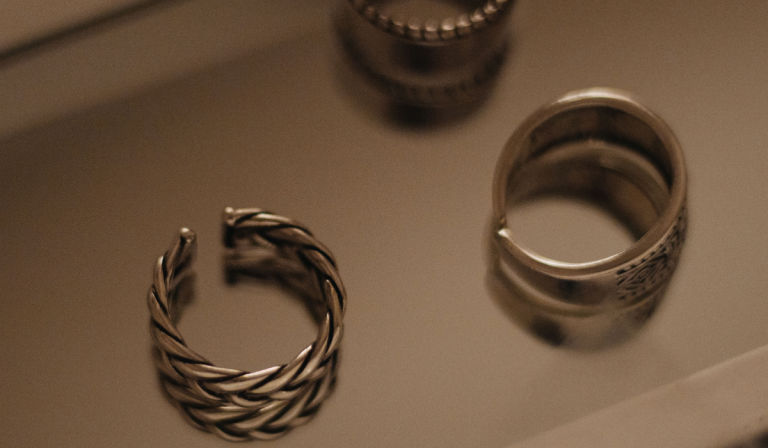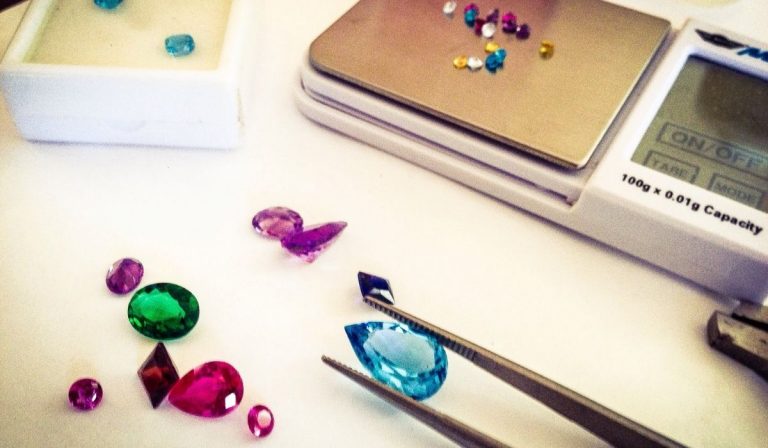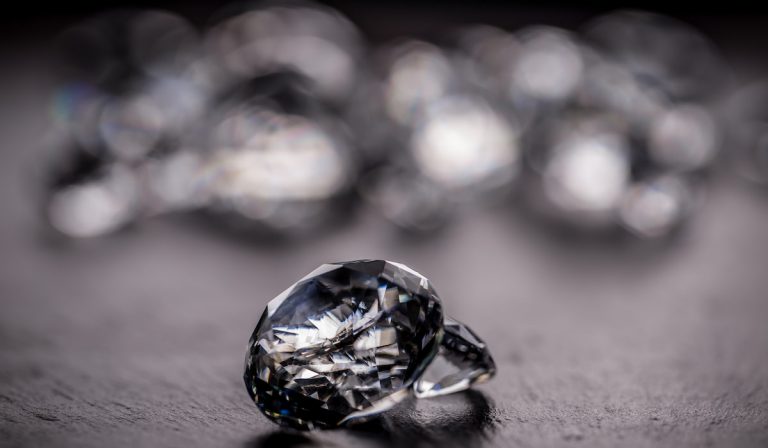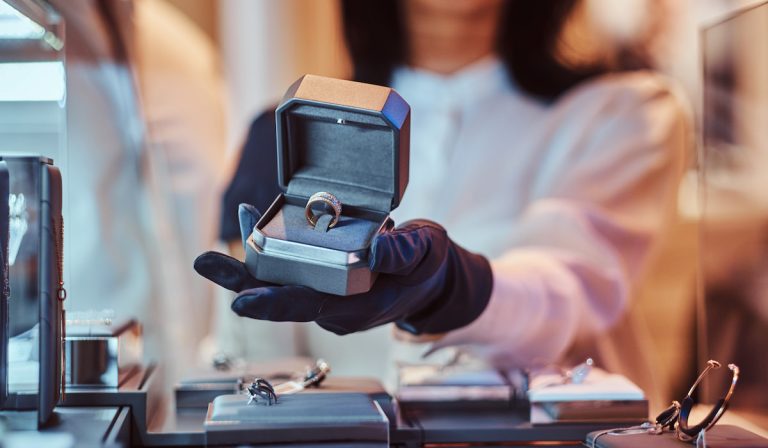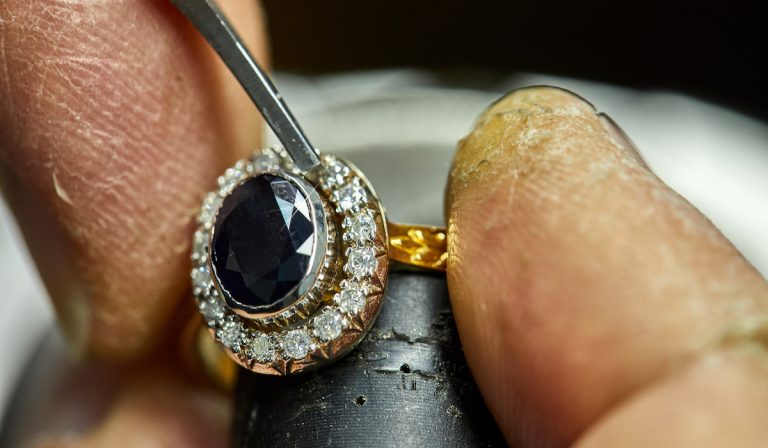How to Clean Jewelry Using Kurin Water? (Complete Procedure!)
Wearing jewelry makes you feel pretty and brings out your natural beauty. The jewelry you wear should reflect your personality and be kept clean to reflect its own beauty. If you wear dirty jewelry, you will not look as good and your jewelry may not last as long. You should clean your jewelry often. But how?
There are many techniques to clean your jewelry, but a recently popular and easy way to clean them is by using Kurin water.
Kurin water is a product formulated to remove germs and dirt from surfaces and it is completely safe for pieces of jewelry. According to the gem or metal used, you can dip the jewelry in kurin water for a few minutes before cleaning or just wipe it with a wet towel.
What technique is best for what type of jewelry? Are there other ways to clean jewelry? We’ll answer these questions and more in the rest of this article.
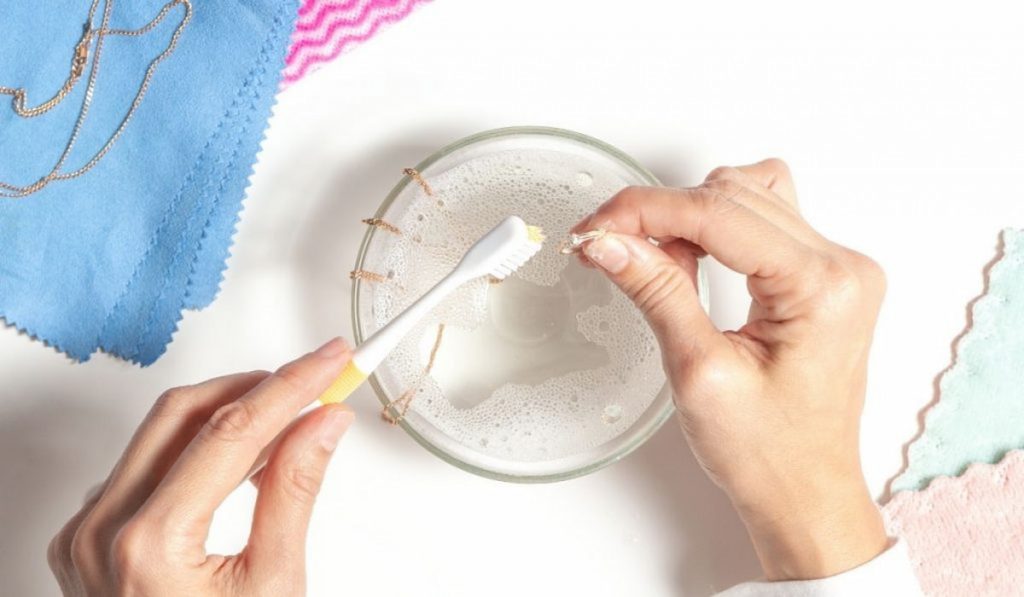
How to Clean Your Jewelry Using Kurin Water
“Kurin water” refers to a series of products that can clean various surfaces. Some types of kurin water include all-purpose, bathroom, kitchen, and fruit and vegetable kurin waters. You can use different types of kurin water for different surfaces, but to clean jewelry, you should use all-purpose kurin water.
According to the type of gem or metal, some ways to clean your jewelry with kurin water are listed below:
- Gold: If your jewelry is made of gold, you should dip it in kurin water for 5 minutes and then wipe it with a dry cloth. To make your jewelry shinier, you should spread baking soda powder on its surface after removing it from the water and wipe it clean with the towel.
- Metal Jewelry: Metal jewelry can corrode if you do not store or clean it properly. You should not dip this jewelry in kurin water. Instead, pour some baking soda on the surface, dip a piece of cloth in kurin water, and then wipe the surface of your jewelry with the towel. You should place the jewelry in a dry place and make sure that it is dry in less than 5 minutes.
- Diamond: Diamonds are easy to clean. You can clean them just like gold jewelry. Dip them in the kurin water solution for a few minutes and then wipe them with a dry towel.
- Silver: For silver jewelry, you should mix baking soda powder with kurin water. Make a watery paste and dip the jewelry in it. Leave the silver in the paste for 3-5 minutes and then wipe it with a clean and dry towel.
- Colorful Gems: You can use any method for your colorful gems. Just make sure that your pieces of jewelry are not metallic and can’t corrode. If they can corrode, make sure that they are almost dry even when cleaning them.
Other Ways to Clean Your Jewelry
Some other common methods of cleaning your jewelry are:
1. Use a Dish Detergent
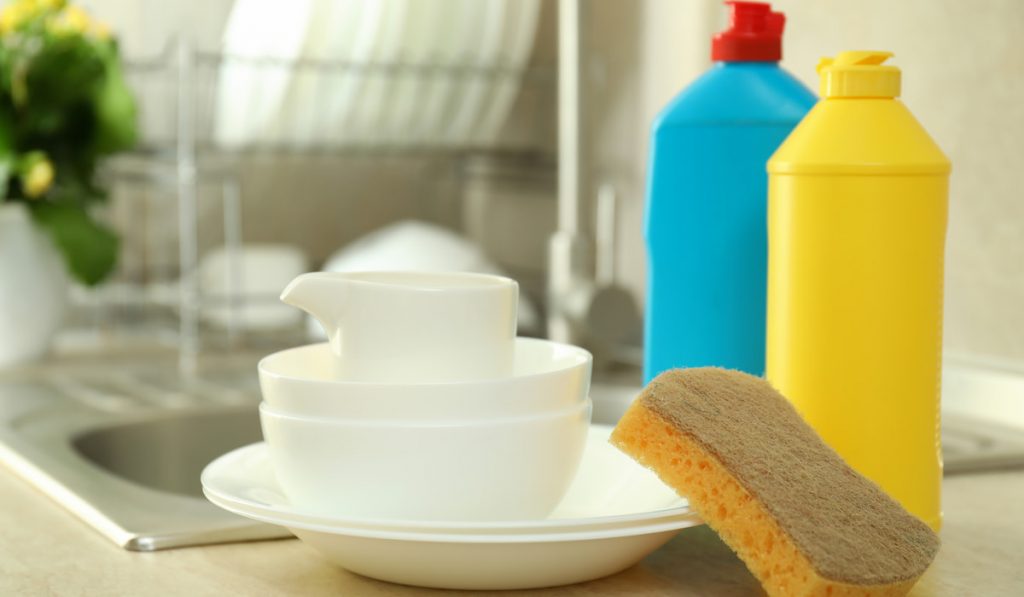
Dish detergent is best for everyday dirt on your jewelry. If your necklace, bracelets, or earrings fall to the ground and have dirt stains, you should use dish detergent to clean them.
You can clean your jewelry with a mixture of soda and a few drops of mild detergent. After cleaning the jewelry, keep it in a dry place.
2. Making a Toothpaste Wash
If you have gems with a dull surface, cleaning them with a toothpaste wash is the best method. You should mix the toothpaste with warm water and then soak the gems in the solution. Wash them thoroughly and brush them gently. When clean enough, remove them from the solution and then wipe them with a dry rag and keep them on a dry surface.
3. White Vinegar
Using white vinegar is best for pieces of jewelry made of pure silver or gold with a high karat count. For silver jewelry, you should soak it for up to an hour and then wipe with a dry towel.
For gold jewelry, wipe it with a set towel (i.e. soak the towel in vinegar) and rinse with water. Keep it in a dry place afterward.
4. Soap and Water
This solution is best for silver jewelry. It does not matter whether your silver is shiny or dull, you can clean it with soap and water. Mix water with soap, dip a towel in it and then wipe the silver with the towels.
5. Wiping Your Jewelry with a Dry Towel
You do not have to use any special product for your metal pieces of jewelry. If they appear dull or there is regular dirt on them, use a dry towel to wipe it clean. You can also soak the towel in water before wiping, but make sure that you keep them dry afterward.
Other Uses of Kurin Water
Aside from the use of kurin water in cleaning jewelry, you can use kurin water for various purposes. Some other uses of kurin water are:
1. Vegetable Wash
With your Kurin “Fruits & Vegetables” product, you can clean your vegetables. Before putting vegetables in to cook with your other food, make sure that they are clean. A very excellent way to wash your vegetables is by using kurin water.
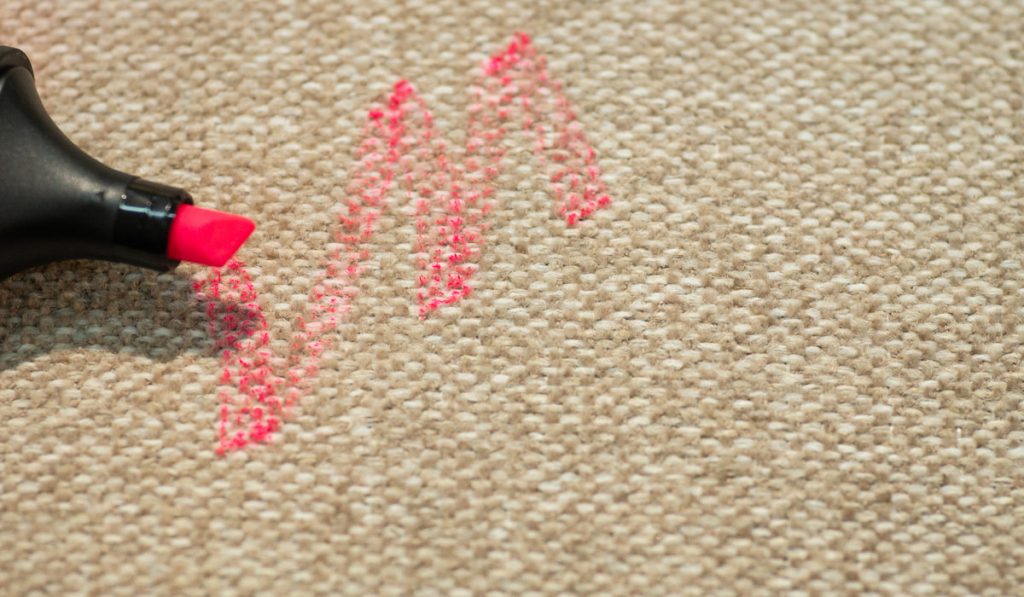
2. Removing Marker Stains
All-purpose kurin water is very effective in removing marker stains from surfaces. Simply dip a towel in the solution and use it to clean the surface. You should use a dry towel afterward to rub the surface dry.
3. Removing Greasy Stains from Utensils
Kurin kitchen is a suitable solution for utensils. Use kurin kitchen to clean your spoons, forks, knives, and other greasy utensils. You can either dip the utensils in the solution or use a wet towel instead. Remember to rinse the utensils with water afterward.
4. Cleaning Cable Cords
Cable cords can become dirty and they appear difficult to clean, but you can use all-purpose kurin water to clean them. Dip a cloth in the solution and use it to wipe the cable cord. You may have to wipe it several times. You can spread baking soda on the cord before wiping it with a wet cloth.
5. Good Wash for Microwaves
Do you regularly clean your microwave? You should because a microwave can breed germs and filth. You should use kurin kitchen to clean your microwaves. Dip a cloth in the product and use it to wipe your microwave surfaces.
Related Questions and Answers
1. Is Kurin Water Harmful to the Skin?
Kurin water is made of 99.98% water and potassium carbonate (food grade). It is completely safe and should not cause any allergic reactions to your skin. Just make sure that you rinse your hands after cleaning your jewelry.

2. Can Kurin Water Kill Plants?
Kurin water does not harm or kill plants. If your plants are dying, they may be dying because of too much watering or other reasons. Your plants are completely safe and kurin water will not kill them.
3. How Can You Clean Your Corroding Metal Surfaces?
While you cannot revert your corroding metal surfaces to make them perfect again, you can prevent the rust from spreading. Damp the rusted surface and dust baking soda on the entire piece. Leave the baking soda on the surface for one hour and then scour the surface with a metal brush or wool. Dry the surface afterward.
You should keep your metal jewelry and objects from getting damp consistently as metals corrode when exposed to dampness.
4. What Do Professionals Use to Clean Their Jewelry?
Professionals use various products to clean their jewelry. Some professionals even mix their own products. Most professionals, however, use ultrasonic cleaners to remove dirt from their jewelry.
While ultrasonic cleaners are effective, you do not need one to clean your jewelry. All you need are household products or kurin water to clean your pieces of jewelry.
5. How Do You Dispose of Kurin Water?
You can dispose of kurin water the same way you dispose of your soapy water. You can dispose of kurin water through your kitchen or bathroom sink. You can even dispose of your kurin water by disposing of it in your yard. Just make sure that you do not litter your environment.
Final Thoughts
While there are so many ways to clean jewelry, a very easy and recent method is by cleaning them with kurin water. Kurin water can clean your gold, silver, diamond, and metal jewelry, making them look shiny and sparkly.
Resources
- https://markxabi.com/2019/12/10/kurin-an-effective-and-safe-everyday-cleaner/
- https://kurin.ph/blog/2020/08/04/How-Do-You-Clean-Jewelry-using-Kurin
- https://www.preview.ph/fashion/how-to-clean-your-jewelry-at-home-a00191-20170630
- https://www.apartmenttherapy.com/how-to-clean-rust-off-old-loaf-141206
- https://www.omegasonics.com/ultrasonic-cleaners/ultrasonic-cleaning-myth-vs-reality-2/


